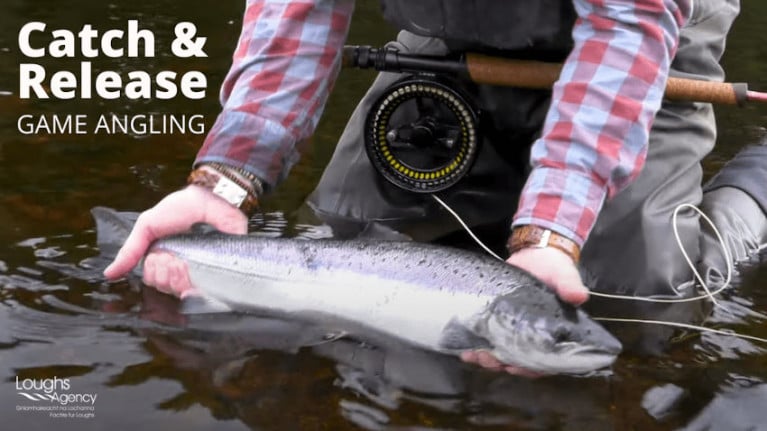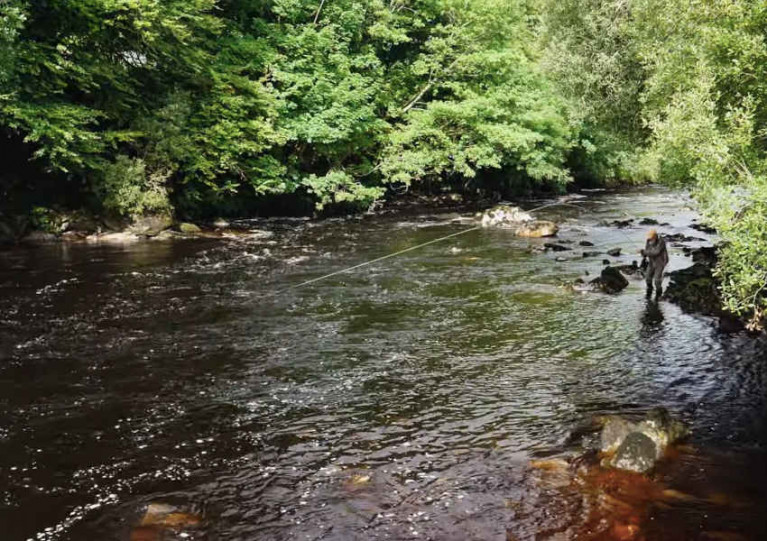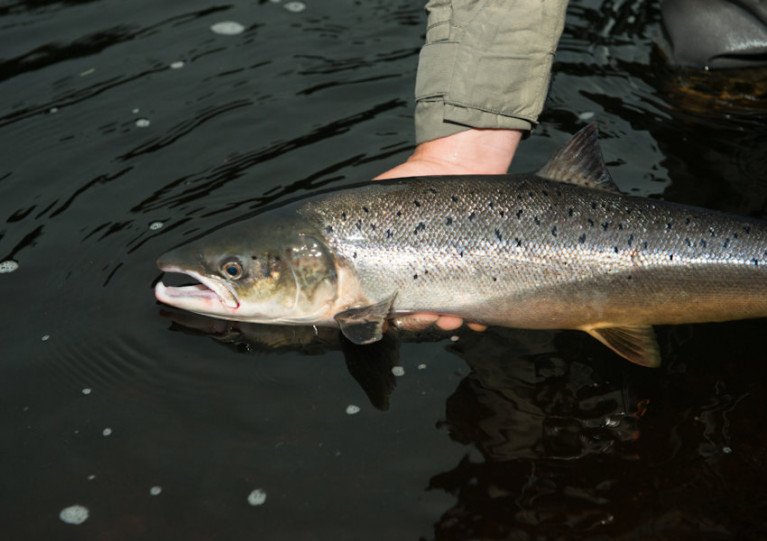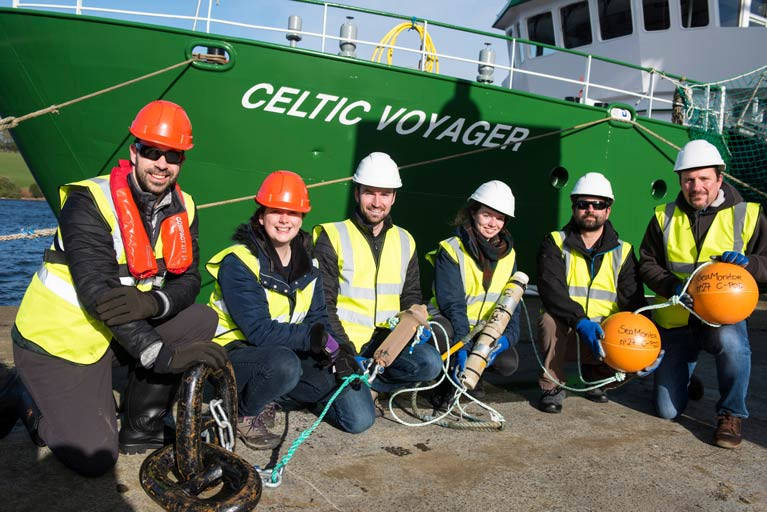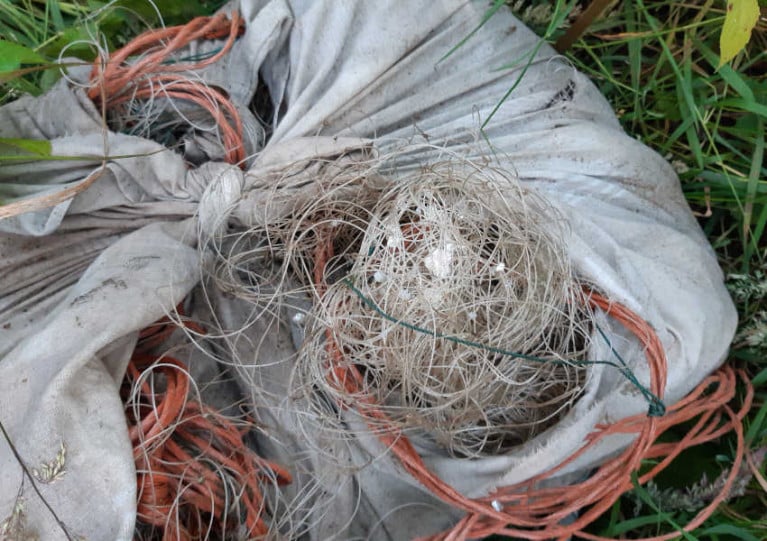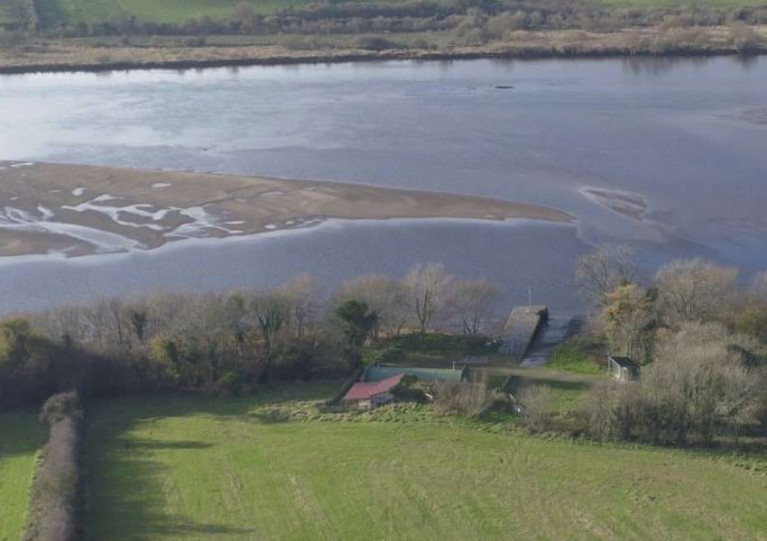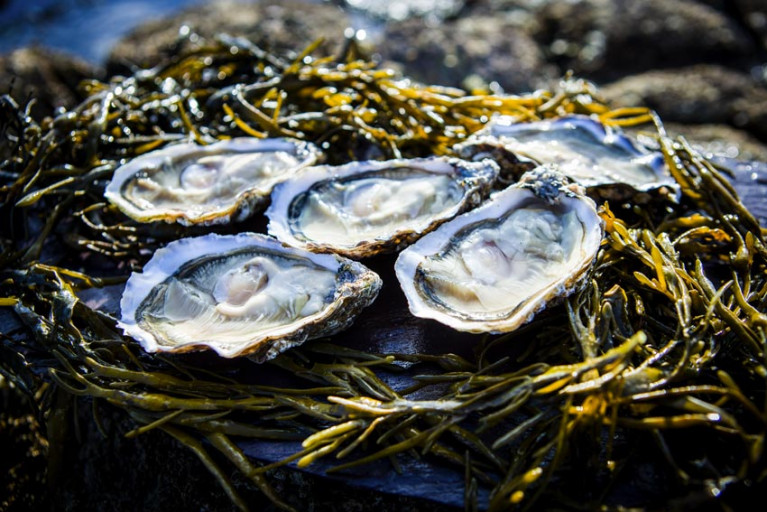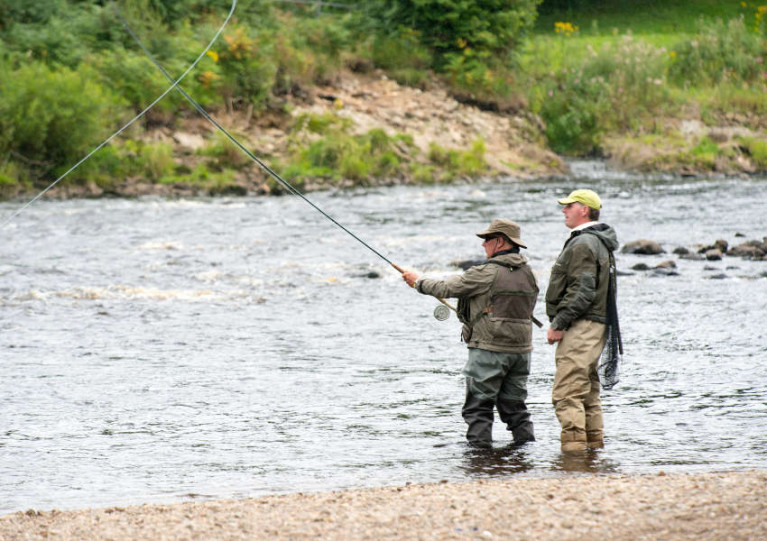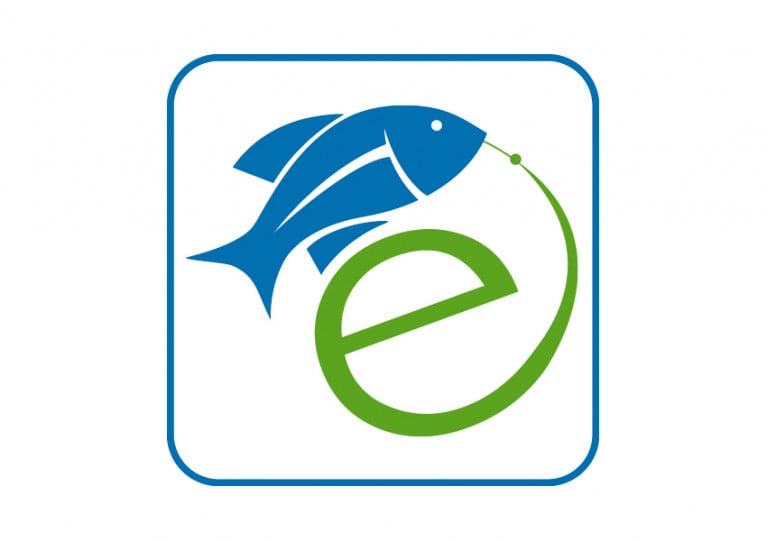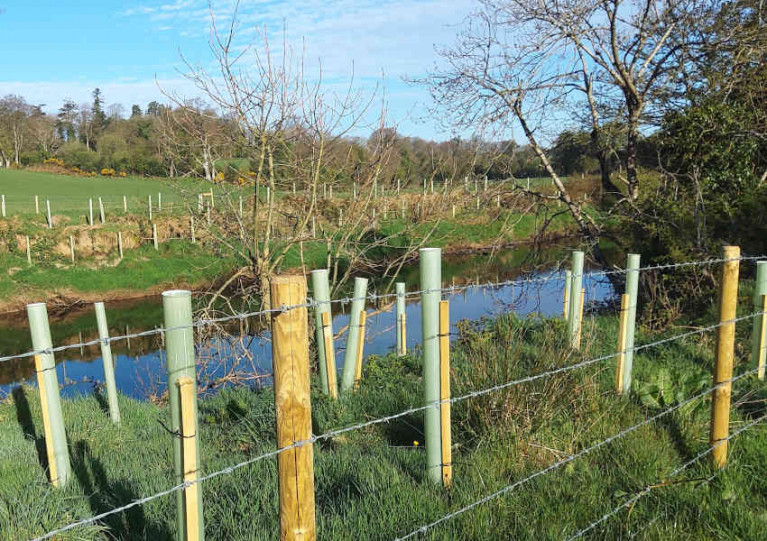Displaying items by tag: Loughs Agency
Loughs Agency Renews Appeal for Anglers to ‘Catch & Release’
The Loughs Agency has launched a new campaign appealing for angling enthusiasts to embrace the practice of catch and release to help sustain fish stocks in the Foyle and Carlingford areas.
The agency says it welcomes the growing trend of catch and release angling as a way of continuing to fish while limiting the impact on local stocks.
And it has produced a video guide to help anglers with their catch and release technique in order to increase the survival rate of salmon after release.
John McCartney, the agency’s director of conservation and protection, also explains the carcass tagging scheme which applies to salmon, brown trout and sea trout retained by recreational anglers, and highlighted the importance of returning any unused tags.
The Loughs Agency is aiming for a catch and release rate of over 80% for salmon and sea trout caught during the new season which is now partially underway.
It also wants to further reduce the number of anglers opting to take tags when purchasing a licence.
‘The agency welcomes this approach to angling and would encourage all anglers to practice this method’
McCartney says: “Last year, 45% of anglers purchasing a licence opted not to take tags and there is a growing trend of anglers implementing the practice of catch and release.
“The agency welcomes this approach to angling and would encourage all anglers to practice this method as a way of continuing to fish, whilst limiting the impact on local stocks.
“Numbered tags are allocated to anglers who request them when they purchase their licence. The angler then records their retained catch and the corresponding carcass tag number when updating their catch return during the fishing season, returning any unused tags to Loughs Agency when their licence expires.
“The catch return data from anglers is analysed throughout the season and used to make fishery management decisions to ensure the sustainability of species in Foyle and Carlingford.”
For the 2021 season, the Loughs Agency is issuing a maximum of one blue tag for the period from 1 March to 31 May and/or a maximum of two black tags for the period from 1 June to 31 October, depending on the type of licence purchased. Tackle shops have been instructed not to issue more than these maximum quantities for the 2021 season.
The above video guide to good practice for anglers with their catch and release technique includes the following pointers:
- Landing the fish quickly to avoid exhausting the fish.
- Use a soft knotless mesh net and keep the fish in the water at all times.
- If you must handle the fish, use wet hands and cradle it below the belly. Never put your fingers inside the gill covers or lift the fish by the tail.
- Use a single barbless hook to limit injury during removal. Remove the hook immediately, keeping the fish in the water.
- If the hook is caught deep in the fish, cut the line and release with hook still inside rather than trying to remove deep-caught hook.
- When releasing the fish, support it in the water using two hands, with the head pointing upstream to aid breathing.
The season has already started on some still-water fisheries, with fishing on the rivers beginning to open up from Monday 1 March.
For further information on season dates, licence and permit requirements in the Foyle and Carlingford areas, visit the angling section of the Loughs Agency website.
Foyle & Carlingford Anglers Urged to Make 2020 Catch Returns to Support Scientific Research
The Loughs Agency is reminding anglers in the Foyle and Carlingford areas to log and submit their angling effort, catches and releases for the 2020 season.
Rod licences for salmon and sea trout in Foyle and Carlingford come with a legal obligation to inform the Loughs Agency (via the eLicence web portal) of how many times the licence holder went fishing and got many fish they caught.
To date, the agency says less fewer than 10% of anglers have made their return for the 2020 season.
For the 2020 season, the Loughs Agency will be carrying out an in-depth study of catch returns and angling effort to determine fish runs in rivers, number of fish caught, weight of fish caught and/or released, and how much time anglers put into catching those fish.
As a result, anglers are encouraged to make their return and be as accurate as possible with locations, dates, weights, species, methods and time spent fishing.
The deadline for catch returns is Thursday 21 January 2021.
The Loughs Agency is calling on anglers in Foyle and Carlingford areas to take immediate steps to ensure sustainability of their wild salmon fisheries.
It comes after the latest State of the Salmon report, published by the North Atlantic Salmon Conservation Organization (Nasco), highlighted the continuous and worrying decline in Atlantic salmon populations.
According to Nasco: ‘It now takes about double the amount of eggs to produce one adult (compared to 1990s) that will return to that same river to spawn — an indication of the multiple pressures facing the species throughout its complex life cycle.”
This decline is reflected in our local rivers and we are calling on anglers to take immediate steps to ensure sustainability of the fisheries of Foyle and Carlingford.
The Loughs Agency is asking anglers to play their part in conserving and protecting these important fish, based on the latest scientific guidance. Anglers are encouraged to:
- Update their catch return and fishing effort regularly and throughout the season on the elicence website. This data is used to help manage the fishery using real-time data. Last year only 7.5% of anglers made a return.
- Keep the 24-hour Loughs Agency Response Line telephone number +(0)44 2871 342100 as a contact on their phone and report any concerns directly and promptly.
- Practice catch and release. Many anglers already do this, with around 42% of anglers not taking carcass tags when they purchase their licence.
- Implement biosecurity measures to prevent the spread of invasive plants and animals.
- Reduce the number of fish taken from the system by complying with the reduction in carcass tags. For the 2020 season the Loughs Agency is issuing a maximum of one blue tag (1 March to 31 May) and two black tags (1 June to 31 October). Tackle shops have been instructed not to issue more than these maximum quantities for the 2020 season.
As the fishery authority for Foyle and Carlingford, the Loughs Agency also plays a vital important role as a steward of key cross-border natural resources.
The agency is undertaking reviews — of legislation, angling development and more — to ensure that its priorities are informed by evidence, particularly in relation to scientific evidence gathered for conservation and protection.
Input will be sought from angling stakeholders on a number of key areas, such as conservation, real-time fisheries management, development of angling and legislation, via a consultation process in due course.
Marine Research Project Stays on Track Despite Pandemic
Important research that will help advance the management of our seas around Ireland, Western Scotland and Northern Ireland has not totally ceased during the coronavirus pandemic.
The SeaMonitor project, which is led by the Loughs Agency and supported by another eight leading marine science research institutions, was able to deploy some of its innovative species tracking technology to better understand and protect vulnerable marine life in our oceans.
Since April, following work on a tracking array at sea from the RV Celtic Voyager, scientists from across the partnership have managed to safely tag and release over 250 fish from five rivers in Ireland, Northern Ireland and Scotland with trackers.
The technology behind them, called acoustic telemetry, involves deploying a series of listening stations from Malin Head to the island of Islay in Scotland that will record transmissions from a variety of marine species tagged by the project’s scientists.
The data, which is due to be downloaded from the receivers in the autumn, will be used to support the conservation of a variety of vulnerable species such as salmon, basking sharks, skate, dolphins, whales and seals.
Funding for the SeaMonitor project to the tune of €4.7m has been provided under the environment objective of the European Union’s INTERREG VA Programme, which is managed by the Special EU Programmes Body (SEUPB).
Match-funding for this project has been provided by the Department for Agriculture, Environment and Rural Affairs in Northern Ireland and the Department of Housing, Planning and Local Government in Ireland.
Welcoming the deployment, Gina McIntyre, chief of the Special EU Programmes Body, said: “I’m delighted to see such significant achievements for the SeaMonitor project given the significant challenges faced by all involved.
“This is a much-needed step forward for the conservation of a number of vulnerable species within our shared oceans. It only serves to highlight the benefits that are created through strong, mutually beneficial cross-border partnerships in the management of marine protected areas and species. Well done to all involved for advancing our understanding of our seas.”
For more information about the project visit the Lough Agency’s SeaMonitor portal or follow the project on Twitter at @SeaMonitor1.
Illegal Nets Removed From River Foyle Fishery
Loughs Agency fishery officers recovered illegal nets in two separate incidents on the River Foyle last weekend.
In the first of these, fishery officers seized a 150m-long net containing 28 salmon at an area known as Rosses Bay.
A sea trout, millet and flounder were also caught in the net, which was found in an important holding water for salmon on their journey to the tributary rivers upstream.
Protection of this area is vital to ensure salmon populations are sustainable, the Loughs Agency says.
In a separate incident, another illegal net was seized on the Foyle at Porthall in Co Donegal after reports from a member of the public about suspicious activity near the river.
The net showed signs of recent use, with fresh salmon scales visible. The net was seized and will be destroyed once a court order has been granted.
Loughs Agency encourages the public to report suspicious activity directly and promptly using the 24-hour Response Line at +44 (0) 2871 342100 or through the WaterWatch reporting tool on its website.
Works Commence On Strabane Canal Improvements
Three months of improvement works at Strabane Canal and The Gribben have begun this week.
William Doherty Construction Ltd is contracted to carry out the works, which commenced on Monday 22 June and entail extensive resurfacing of the 1.2km of towpath from Greenlaw Road to the Foyle, fencing improvements, and new signage and seating.
At The Gribben, the plans include providing improved camping facilities and adding new signage and seating.
The £225,000 project is being part-funded by Derry City and Strabane District Council, the Loughs Agency and the Northern Ireland Rural Development programme 2014-2020 from the Department of Agriculture, Environment and Rural Affairs and the European Union.
It is part of the Rivers Project, a rural co-operation partnership between the Loughs Agency, Derry City and Strabane District Council, Donegal County Council and Causeway Coast and Glens Council, as well as partners in Latvia and Estonia.
The aim of the project is to improve facilities for both land and water users at the council-owned Strabane Canal and the Loughs Agency-owned Gribben site.
The council says the project will deliver on several of the key priorities in its Green Infrastructure Plan, including the provision of high quality multi-functional green and blue spaces, and ensuring these are a driver for tourism and economic growth.
Welcoming the commencement of the works, Mayor of Derry City and Strabane District Council, Cllr Brian Tierney, said this was very welcome news for the people of Strabane and the wider area.
He said once complete, it will make the Strabane Canal area and The Gribben much safer and accessible to the public.
“This is a very popular area for walkers, cyclists and people who love the outdoors and I am delighted council and its partners have taken the lead in upgrading the amenities in the area to make it more accessible and enjoyable for people to use,” he said.
Loughs Agency chief executive Sharon McMahon said it “is pleased to be a partner in this project, that will improve the experience for visitors to Strabane Canal and Gribben Quay”.
“The agency continues to work on the development of marine tourism and angling throughout the cross border Foyle Catchment, exploring innovative ways for people to become better connected to the beautiful, natural assets we have in our care,” she added.
Mary Hunter, chair of Derry and Strabane Rural Partnership, said the canal works comprise “the first capital project under the Rural Development Programme Co-operation Scheme” for the partnership.
“Meaningful improvements to both sites will make them more appealing for local users and will also enhance the visitor experience and tourism potential to these rural areas, which will have a positive economic impact on our rural economy.”
Public access to the site is currently prohibited while this work is being carried out over the next 12 weeks, weather permitting.
Lough Foyle Oyster Fishery Licence Applications Now Open
The Loughs Agency is now inviting interested parties to apply for a licence to fish the 2020/2021 native oyster fishery in Lough Foyle.
Applicants will be required to submit a completed application form by post only (standard delivery, not recorded delivery) due to coronavirus restrictions to:
Loughs Agency Headquarters
22 Victoria Road
Derry~Londonderry
BT47 2AB
Northern Ireland
Applicants are also asked not to send additional documents or payment, only the application.
The licence fee is £150 or €166 with fees payable on receipt of licence.
Anyone who held a licence to fish the Lough Foyle native oyster fishery last season will receive an application pack via post.
If you do not receive a pack or you did not hold a licence last season but wish to apply this year, please either download a form or contact +44 (0) 28 71 342100 (lines open Mon-Fri 9am-5pm) to receive a hard copy via post.
Interested parties must have completed applications with the Loughs Agency on or before Friday 31 July. No late applications will be accepted.
Permits Now Available For Loughs Agency Fisheries
As of yesterday (Tuesday 19 May), permits are available for Loughs Agency permit waters on the River Foyle, River Finn (approx six miles) and Greenbraes Fishery.
DAERA has also opened, with limitations, the Public Angling Estate in Northern Ireland — which in the Foyle and Carlingford areas includes Loughbrickland, Binevenagh, Moor Lough, Lough Ash, Lough Bradan, Lough Lee and a section of the River Roe.
The Loughs Agency adds that angling clubs and private fisheries will decide how and when to open their waters.
It is for each club and fishery owner to decide if they can comply with government advice with regard to social distancing and hand hygiene.
Anglers are reminded that they also have individual responsibility to comply with UK and Irish government advice regarding social distancing, hand hygiene and travel restrictions.
The agency’s fisheries protection staff have returned to full-time duties with immediate effect and will continue to work in partnership with the PSNI and An Garda Síochána with regard to fisheries offences.
Game and coarse anglers are also reminded that to fish in the waters of Foyle and Carlingford they require a licence from Loughs Agency and a permit from whomever holds the fishing rights.
Loughs Agency licences are available online. Anglers should contact the fishery/angling club directly regarding permits that are not provided by Loughs Agency.
Loughs Agency eLicence Portal Now Back Online
The Loughs Agency’s elicence website is now back online and anglers can purchase licences for the Foyle and Carlingford areas.
Anglers are individually responsible for compliance with their government’s advice and guidance. Anglers should keep up to date with the latest advice from the Public Health Agency (PHA) in Northern Ireland and the Health Service Executive (HSE) in Ireland.
Loughs Agency offices remain closed and the normal licence distributor network is also still under lockdown conditions. Therefore, anyone wishing to purchase a licence should do so through the elicence website.
For anglers requesting carcass tags when they purchase a licence online, these will be posted to your address. Anglers should take this into account when purchasing.
For anglers purchasing a Loughs Agency endorsement licence, please ensure you have already purchased a full season licence or concession licence from DAERA or a full season or district licence from Inland Fisheries Ireland (IFI). Loughs Agency carryout checks with our colleagues in DAERA and IFI to validate licence purchases.
If you require a Loughs Agency permit for Foyle, Finn or Greenbraes, please contact the Loughs Agency on +44 (0) 2871 342100 (Mon-Fri 9am-5pm).
Illegal fishing or pollution concerns can be reported through the Loughs Agency’s Waterwatch reporting tool online or through the 24-hour response line on +44 (0) 2871 342100.
If you require any further assistance, call the Loughs Agency at the above number during normal weekday office hours or email [email protected]
In Northern Ireland, the Loughs Agency has been working in partnership with the Woodland Trust, NI Water, angling clubs, landowners and others to plant in excess of 20,000 native trees to help improve fishery habitats.
Native tree planting is a great way of improving land and aquatic habitats as it delivers many benefits, says the agency for the Foyle and Carlingford fishery areas.
Tree root systems stabilise uplands and reduce the risk of landslides into water courses. Rainfall is intercepted by trees which slows river flows and flood damage is reduced. Debris from fallen trees protects against bank erosion and provides cover and food for fish and invertebrates.
Most importantly, riverside planting keeps rivers cool and protects salmon and trout during hot droughts.
Sharon McMahon, Loughs Agency chief executive, said: “The threat from climate change to river ecosystems cannot be ignored.
“Trees, shrubs and other vegetation create valuable shade, reducing the temperature of our waterways and deliver a range of other ecological benefits. Loughs Agency are continuing to find innovative ways to mitigate against the effects of climate change to keep our rivers cool for freshwater wildlife.”
In recent years, the Loughs Agency has conducted several large-scale, native tree planting projects. Thousands of saplings have been planted at the Reelan and Cronamuck rivers in the Finn catchment, the Glenedra and Burntollet Rivers in the Faughan catchment and the along the River Roe.
And the Loughs Agency says it is always eager to develop collaborative projects with local partners. If you belong to an organisation which is interested in protecting and improving local aquatic habitats, contact [email protected]


























